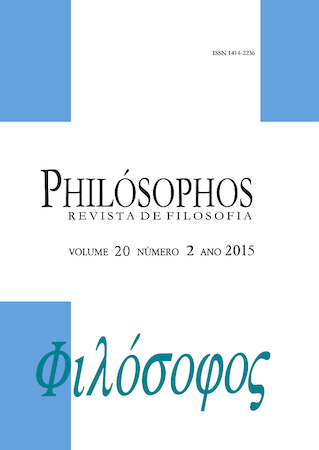FREUD: THE BEYOND-MAN AND THE HORDE PRIMEVAL PATRIARCH
DOI:
https://doi.org/10.5216/phi.v20i2.32295Keywords:
Desire, drive, will to power, horde.Abstract
Freud relates to the notion of beyond-the-man through a double movement, if we consider the direct satisfaction of the Triebe in contrast to the possibility of refining the targets of the drives. On the one hand, the analyst accepts the idea of Nietzsche that sublimation is precisely the means by which occurs the refinement of the targets of the impulses, but simultaneously reaffirms Schopenhauer's idea that suffering is the background of all life, has the constant voltage of the drive is precisely the phenomenon that strains us and propels us forward: it is the difference between the actual pleasure obtained by satisfaction with the expected pleasure that comes the factor that drives (treibende). This does not allow the body to park in any of the previously established forms of satisfaction, but instead will cause this organism in their psychic context, claim a state of profound satisfaction, which is, however, hampered by the force of resistances that the process of repression still keeps active and by the difficulties inherent in human interaction and conflict between desires and capabilities.Downloads
Downloads
Published
How to Cite
Issue
Section
License
Authors who publish in this journal agree to the following terms:
- Authors retain copyright and grant the journal right of first publication, with the work simultaneously licensed under a Creative Commons Attribution License that allows others to share the work with an acknowledgement of the work's authorship and initial publication in this journal.
- Authors are authorized to enter into separate, additional contractual arrangements for the non-exclusive distribution of the journal's published version of the work (e.g., publishing in an institutional repository or as a book chapter), with an acknowledgement of its authorship and initial publication in this journal.















